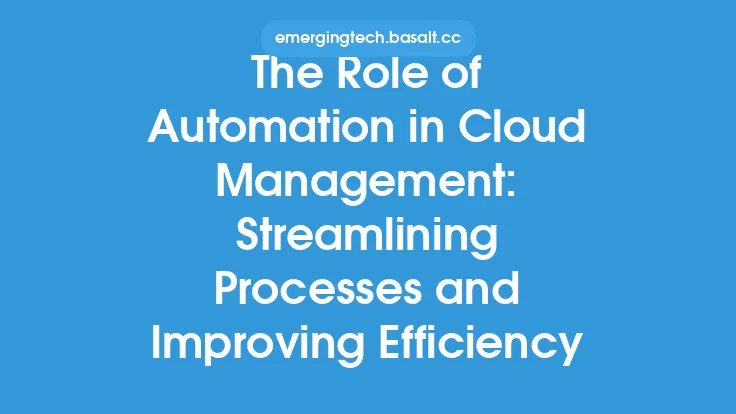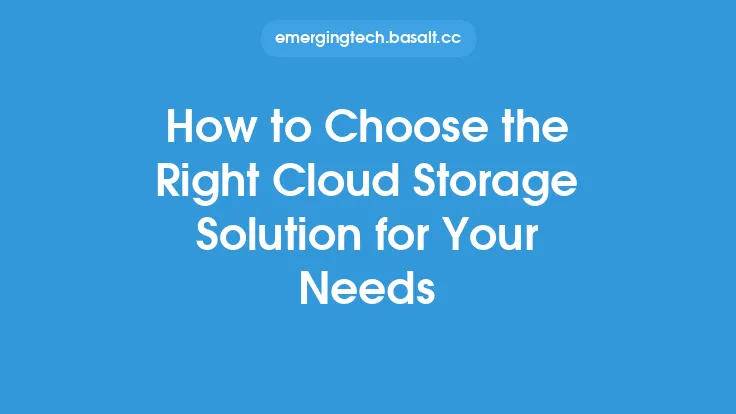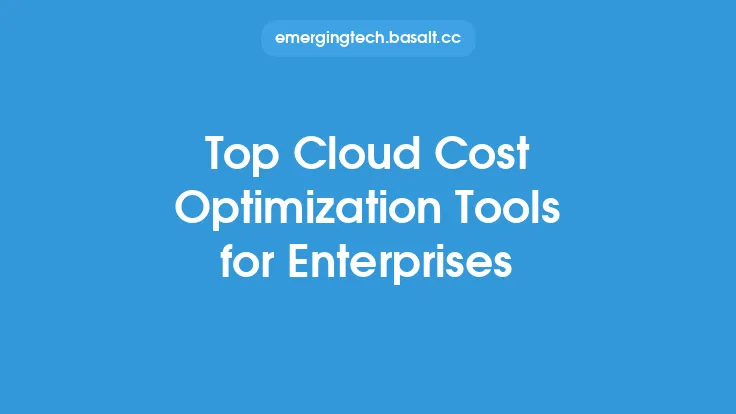The cloud storage market has become increasingly crowded over the years, with numerous providers offering a range of services to individuals and businesses. With so many options available, it can be challenging to determine which provider best meets your needs. In this article, we will compare some of the top cloud storage providers, highlighting their features, pricing, and strengths to help you make an informed decision.
Introduction to Top Cloud Storage Providers
The top cloud storage providers include Google Drive, Microsoft OneDrive, Amazon Drive, Dropbox, and Apple iCloud. Each of these providers offers a unique set of features and pricing plans, making them suitable for different types of users. Google Drive, for example, is a popular choice among individuals and businesses due to its seamless integration with Google Docs and other Google apps. Microsoft OneDrive, on the other hand, is a great option for those already invested in the Microsoft ecosystem, such as users of Microsoft Office.
Features and Pricing Comparison
When comparing cloud storage providers, it's essential to consider the features and pricing plans they offer. Google Drive, for instance, offers 15 GB of free storage, with paid plans starting at $1.99 per month for 100 GB. Microsoft OneDrive offers 5 GB of free storage, with paid plans starting at $6.99 per month for 1 TB. Amazon Drive offers 5 GB of free storage, with paid plans starting at $6.99 per month for 1 TB. Dropbox, known for its user-friendly interface, offers 2 GB of free storage, with paid plans starting at $11.99 per month for 2 TB. Apple iCloud, on the other hand, offers 5 GB of free storage, with paid plans starting at $0.99 per month for 50 GB.
Security and Data Protection
Security and data protection are critical considerations when choosing a cloud storage provider. All the top providers offer robust security measures, including encryption, two-factor authentication, and access controls. Google Drive, for example, uses AES 256-bit encryption to protect data both in transit and at rest. Microsoft OneDrive uses AES 256-bit encryption and also offers advanced threat protection and data loss prevention features. Amazon Drive uses SSL/TLS encryption to protect data in transit and AES 256-bit encryption to protect data at rest. Dropbox uses AES 256-bit encryption and also offers two-factor authentication and access controls. Apple iCloud uses AES 256-bit encryption and also offers two-factor authentication and access controls.
Collaboration and File Sharing
Collaboration and file sharing are essential features for businesses and individuals who need to work with others on files and projects. Google Drive, Microsoft OneDrive, and Dropbox offer robust collaboration features, including real-time commenting, @mentions, and file sharing. Amazon Drive and Apple iCloud also offer file sharing features, although they are not as robust as those offered by the other providers. Google Drive, for example, allows users to share files and folders with others, set permissions, and track changes. Microsoft OneDrive offers similar features, including the ability to share files and folders, set permissions, and track changes.
Platform Support and Integration
Platform support and integration are also critical considerations when choosing a cloud storage provider. All the top providers offer support for multiple platforms, including Windows, macOS, Android, and iOS. Google Drive, for example, offers seamless integration with Google Docs, Google Sheets, and Google Slides, making it a great option for those already invested in the Google ecosystem. Microsoft OneDrive offers integration with Microsoft Office, making it a great option for those already using Microsoft apps. Amazon Drive offers integration with Amazon S3, making it a great option for businesses and developers. Dropbox offers integration with a wide range of third-party apps, including Microsoft Office, Google Docs, and Trello.
Customer Support and Resources
Customer support and resources are essential for users who need help with their cloud storage accounts. All the top providers offer robust customer support, including online resources, FAQs, and support forums. Google Drive, for example, offers 24/7 support via phone, email, and chat. Microsoft OneDrive offers 24/7 support via phone, email, and chat, as well as online resources and FAQs. Amazon Drive offers support via email and chat, as well as online resources and FAQs. Dropbox offers support via email and chat, as well as online resources and FAQs. Apple iCloud offers support via phone, email, and chat, as well as online resources and FAQs.
Conclusion
In conclusion, choosing the right cloud storage provider depends on your specific needs and requirements. Google Drive, Microsoft OneDrive, Amazon Drive, Dropbox, and Apple iCloud are all top-notch providers that offer a range of features, pricing plans, and security measures. By considering factors such as features, pricing, security, collaboration, platform support, and customer support, you can make an informed decision and choose the provider that best meets your needs. Whether you're an individual or a business, there's a cloud storage provider out there that can help you store, access, and share your files securely and efficiently.





